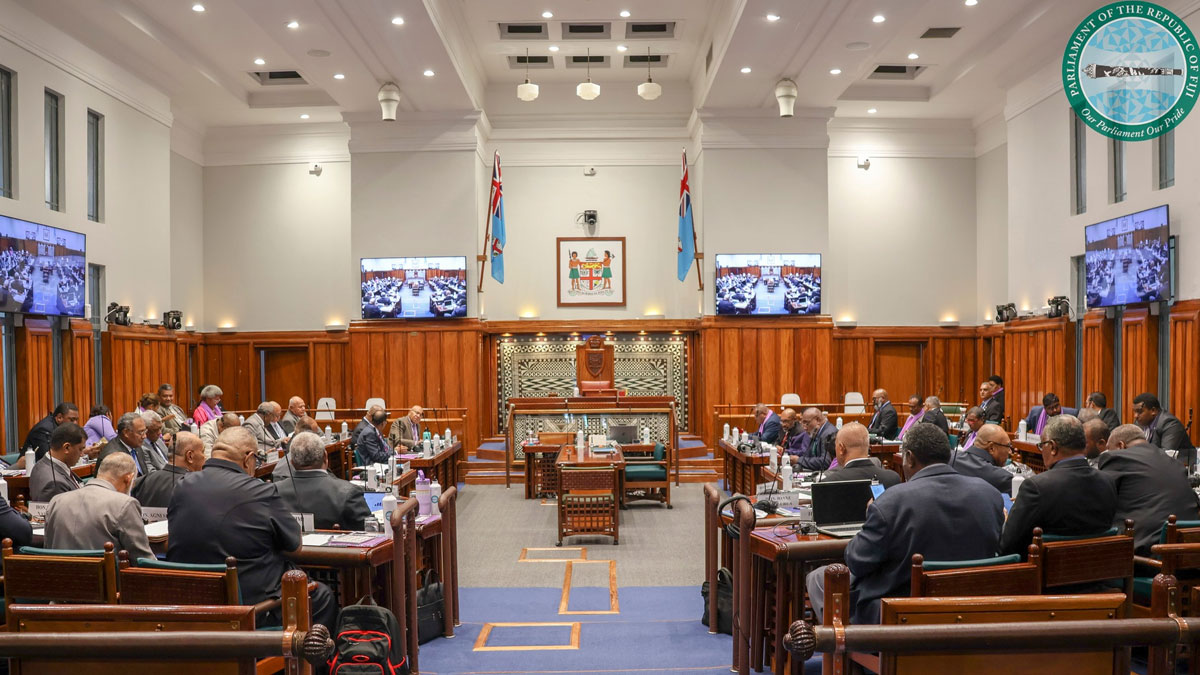
A Code of Conduct law applicable to the President, Speaker, Deputy Speaker, Prime Minister, Ministers, Members of Parliament, holders of offices, members of commissions, permanent secretaries, ambassadors or other principal representatives of the State, and persons who hold statutory appointments, will be debated in parliament at the end of next month.
Attorney General, Graham Leung presented the Bill in parliament today.
This is a written law that establishes a code of conduct that is yet to be enacted in accordance with the Constitution.
The Code of Conduct Bill 2018 that was introduced in November 2018 lapsed on the dissolution of that Parliament.
It also lays out the requirements for the making of a declaration of assets, liabilities and financial interests by an executive office holder, office holder or Parliamentary office holder.
The Bill’s objectives include establishing integrity and accountability standards, promoting public confidence, requiring declarations, ensuring compliance with codes of conduct, making of declarations and the keeping of registers, and raising public awareness of the applicable codes of conduct.
It requires an executive office holder, office holder or Parliamentary office holder to make reasonable efforts to comply with and uphold their code of conduct, and the proposed law also requires them to submit truthful and accurate declarations: within 30 days of taking office, annually on 1st July, within 30 days of any material change, and for existing office holders within 30 days of the clause’s commencement.
An executive office holder, office holder or Parliamentary office holder must declare, as applicable, any significant income sources, offices held, business interests, trusts, property, contracts, financial interests, lobbyist activities, conflicts of interest, bankruptcy, corporate insolvency, disqualifications, or offences.
It also requires the Accountability and Transparency Commission chairperson to maintain the Declaration Register, recording declaration details and any additional relevant information.
The register may, wholly or partly, be in digital, documentary, or any suitable form.
According to the Bill, a person commits an offence if they knowingly provide false, misleading, or incomplete information in a declaration, submitted to the Commission chairperson or an authorised person.
It states that a person commits a summary offence if they recklessly provide false, misleading, or incomplete information in a declaration under this Act, submitted to a government entity or authorised person.
If a person is not found guilty from knowingly providing false, misleading, or incomplete information in a declaration under this Bill but is proven guilty from recklessly doing so, the court may convict them of the lesser offence.
The penalty for breaching any of these offences is a fine up to $2000 or imprisonment for up to 1 year.
The proposed law also requires public entities to ensure compliance with their codes of conduct when developing policies, programs, and delivering services.
It also clarifies that Parliament does not create legal rights, civil causes of action, or grounds for reviewing judicial or administrative acts or omissions for an individual.
A section of the Bill also amends section 24 of the Political Parties (Registration, Conduct, Funding and Disclosures) Act 2013 inserting: Subsection 24(7), exempting persons required to make a declaration under the Code of Conduct Act 2025.
Speaking on the Code of Conduct Bill 2025, the Attorney General says the bill seeks to modernise the integrity and accountability framework for public officeholders by applying codes of conduct to public officeholders not covered under Fiji's existing laws.
He says the bill intends compliance by public officeholders.
Leung says there is and there will be a statutory obligation to promote and monitor compliance with codes of conduct and the making of declarations conferred by the bill on the chairperson of the Accountability and Transparency Commission when it is eventually established by law.
He adds the activities and services of government are broad and delivered in various ways.
The Attorney General says the bill imposes an obligation on public entities that form part of the wider framework of government, so that any person in a public enterprise or board must comply with the requirements of the code of conduct that applies to them.
He says the bill, importantly requires public entities to deliver policies, services and processes to our communities that are consistent with the standards of the code of conduct that will eventually be enacted by Parliament.
Leung says it is intended that this obligation will require public entities to deliver on the expectations of the people of this country that services to them will be provided in a way that is fair and respectful.
He adds the codes of conduct are established under the schedules of the bill.
He says the overarching principles for the three codes of conduct are that public officeholders must act with integrity and uphold the public interest, be accountable for their actions and decisions and, importantly, be respectful of the people that they serve.
The Attorney General says the bill applies specific principles to each of the three types of public officeholders.
Stay tuned for the latest news on our radio stations

